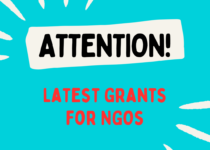Research Grants on Reducing Inequality USA: Complete Information on how to apply and eligibility criteria
Introduction: Research Grants on Reducing Inequality USA, This program actively supports and invests in research studies that strive to enhance, evaluate, or deepen our comprehension of initiatives, policies, or approaches designed to address and diminish disparities in academic, social, behavioral, or economic outcomes among young individuals aged 5-25 in the United States. These disparities are examined along various dimensions such as race, ethnicity, economic background, language minority status, or immigrant origins. By funding these research studies, the program aims to foster equitable opportunities and promote inclusivity for all young people, ensuring a more just and prosperous society.
Last Date: Apply by 2nd August 2023
This research grant is from the William T. Grant Foundation
Research Grants on Reducing Inequality USA
The scope of work included for funding by William T. Grant Foundation
- Descriptive studies that describe, explore, or explain how programs, practices, or policies reduce inequality
- Intervention studies that provide causal evidence on the effectiveness of programs or policies for reducing inequality
- Measurement development studies that can enhance the work of researchers, practitioners, or policymakers to reduce inequality .
Research Grants on Reducing Inequality USA Funding Details
Major Research Grants
- $100,000 to $600,000 over 2-3 years, including up to 15% indirect costs.
- Projects involving secondary data analysis are typically at the lower end of the budget range, whereas projects involving new data collection and sample recruitment can be at the higher end. Proposals to launch experiments in which settings (e.g., classrooms, schools, youth programs) are randomly assigned to conditions sometimes have higher awards.
Officers’ Research Grants
- $25,000–$50,000 over 1-2 years, including up to 15% indirect costs.
- Studies may be stand-alone projects or may build off larger projects. The budget should be appropriate for the activities proposed
Research Grants on Reducing Inequality USA Eligibility Criteria
Eligible Organizations
- The Foundation makes grants only to tax-exempt organizations. We do not make grants to individuals.
- We encourage proposals from organizations that are under-represented among grantee institutions, including Historically Black Colleges and Universities (HBCUs), Hispanic-serving Institutions, Tribal Colleges and Universities (TCUs), Alaska Native-Serving Institutions, Native Hawaiian-Serving Institutions, and Asian American Native American Pacific Islander Serving Institutions (AANAPISIs).
Eligible Principal Investigators
- The Foundation defers to the applying organization’s criteria for who is eligible to act as a Principal Investigator or Co-Principal Investigator on a grant. In general, we expect that all investigators will have the experience and skills to carry out the proposed work.
- We strive to support a diverse group of researchers in terms of race, ethnicity, gender, and seniority, and we encourage research projects led by Black or African American, Indigenous, Latinx, and/or Asian or Pacific Islander American researchers.
Eligible Studies
- Only studies that 1) align with the stated research interests of this program and 2) relate to the outcomes of young people between the ages of 5 and 25 in the United States are eligible for consideration.
- We do not support non-research activities such as program implementation and operational costs, or make contributions to building funds, fundraising drives, endowment funds, general operating budgets, or scholarships. Applications for ineligible projects are screened out without further review.
Research Grants on Reducing Inequality USA Application Review Criteria
All letters of inquiry are initially reviewed by internal staff with social science expertise. On occasion, internal reviewers will request more information from applicants or solicit expert opinions to better assess a project. In general, however, given the breadth of studies proposed in letters of inquiry, internal reviewers may lack deep knowledge of an applicant’s specific area of work, so avoid disciplinary jargon and use language appropriate for an educated lay audience. We begin application reviews by looking at the importance of the research questions or hypotheses. Then we evaluate whether the proposed research designs and methods will provide strong empirical evidence on those questions.
Checkout here official website of William T. Grant Foundation
Our information bears no cost, if you want to be notified please subscribe to our website,
Leverage your organisation with the information published on our website on particular topics
- Latest Funds for NGOs,
- NGO Jobs
- Resources (Helpful Guides and Courses)
- Premium Resources
- NGO related articles
Sharing is appreciated



